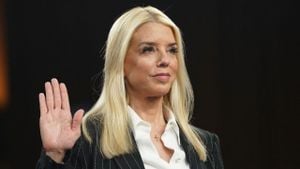Germany is set to hold its snap parliamentary elections on February 23, 2025, during a tumultuous period characterized by economic uncertainty and political tension. The election will determine new leadership amid rising political stakes, with the conservative Christian Democratic Union (CDU), led by Friedrich Merz, currently polling at approximately 30%—a significant lead over their competitors. Merz has made clear commitments to revive Germany's economy, address immigration issues, and redefine the country’s position within Europe’s political framework.
With more than 59 million eligible voters, the election has become especially significant following the collapse of Chancellor Olaf Scholz's coalition government last November. The campaign has revolved around the faltering economy, rising immigration concerns, and the geopolitical ramifications of Russia’s war on Ukraine.
Friedrich Merz, the frontrunner for the chancellorship, has campaigned on promises to realign Germany's stance within the European Union, stating emphatically, "We must sit at the main table; and we must safeguard our interests against Russia, against China, and if necessary also with respect to America". His vision emphasizes economic revival, where he claims, "We will only gain respect... if we finally overcome our country’s economic weakness." Merz has also touched on immigration reform, advocating stricter border controls amid growing domestic unrest. The most recent polling suggests the CDU is poised to reclaim its status as Germany’s leading political party after years of underperformance.
Chancellor Olaf Scholz, who leads the Social Democrats (SPD), faces steep challenges. Once the country’s most favored party, the SPD has seen dwindling support, with polls indicating they may secure only around 14-16% of the vote. While Scholz remains hopeful, declaring, "I am convinced...many people will only make their decision at the polling station," his party’s prospects have significantly dimmed following the coalition collapse. The SPD's platform includes enhancing social spendings, such as proposing the establishment of a "Germany fund" to increase investments, raising the minimum wage, and addressing failed asylum requests. Yet, fears about the SPD's position linger as they confront the surge of the far-right Alternative for Germany (AfD).
The AfD, spearheaded by Alice Weidel, is anticipating historic gains, with estimates indicating their support may double compared to previous elections. The party has skillfully capitalized on rising disenchantment with mainstream politics, focusing its campaign on immigration and national security issues. Beatrix von Storch, an AfD senior figure, stated, "Look at our faces, this is love, now look over there, the hate," emphasizing the divide the party aims to exploit.
With the support of controversial figures like Elon Musk and U.S. Vice President JD Vance, the AfD has gained traction, appealing particularly to voters concerned about their national identity amid rising migration. The party's rhetoric is fiercely anti-immigration and increasingly calls for aggressive policies like mass deportation. Merz, addressing his party’s position on the AfD, has firmly ruled out any coalition with them, stating, "We will under no circumstances discuss any talks...with AfD." This position is complicated by the fact the AfD may emerge as the second largest party—potentially jeopardizing the stability of future coalitions.
Markus Söder of the Bavarian Christian Social Union (CSU) echoed Merz’s sentiment, insisting there would be “no coalition with the Greens,” showcasing the difficulty the conservative alliance might face should they secure their expected majority.
Despite leading polls, Merz faces obstacles if he wins the election, especially concerning coalition formation. If CDU triumphed, they would likely seek to partner with either the SPD or the Greens to form the government, leading to complicated negotiations and potential compromises on key policies, such as immigration reforms or fiscal responsibilities. Given the SPD's historical reluctance to align with the CDU post-crisis, the proposal of coalition shifts adds another layer of complexity.
With voting scheduled from 08:00 to 18:00 CET, the day carries weight not just for Germany but for Europe as well. The outcome will likely redefine the role of Germany on the European and global stage, particularly amid waning trust in U.S. leadership under President Trump. Merz’s remarks reflect this shift as he noted the potential for long-term instability within the U.S. — "I hope the U.S. remains a democracy." The fallout from this election will reverberate significantly as the geopolitical and economic landscapes shift both at home and abroad.
Driven by public policy debates, societal fragmentation is evident across Germany as the influence of the AfD grows, illustrating deep-rooted fears about immigration and national security. Scholz remains resolute, addressing supporters successfully by calling for vigilance against the far-right’s emergence and rallying those who seek unity to stave off radicalism. He warned, "Halting the rise of the AfD is the central task of the election. Uncertainty about the future has increased and the answer to this must be to...ensure our country is still as far ahead as we are today."
Germany is undergoing a pivotal transformation, and the election on February 23 could significantly alter the country's political fabric. With everything at stake—economic stability, immigration policy, and Germany’s relationship with Europe—the results will not only shape the new governmental structure but also set the tone for the political direction of the nation for years to come.



